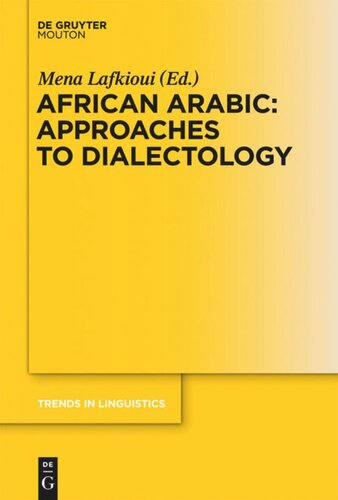

Most ebook files are in PDF format, so you can easily read them using various software such as Foxit Reader or directly on the Google Chrome browser.
Some ebook files are released by publishers in other formats such as .awz, .mobi, .epub, .fb2, etc. You may need to install specific software to read these formats on mobile/PC, such as Calibre.
Please read the tutorial at this link: https://ebookbell.com/faq
We offer FREE conversion to the popular formats you request; however, this may take some time. Therefore, right after payment, please email us, and we will try to provide the service as quickly as possible.
For some exceptional file formats or broken links (if any), please refrain from opening any disputes. Instead, email us first, and we will try to assist within a maximum of 6 hours.
EbookBell Team

4.3
78 reviewsThis present book studies from a dialectological perspective various African Arabic varieties, such as Maghreb Arabic, Bongor Arabic, Juba Arabic and Logorí Arabic. On the one hand, different specific linguistic aspects related to phonetics and phonology as well as to morphology, syntax and lexicology are discussed in this volume; e.g. the Arabic loanwords in Somali with regard to the strata in South Arabian, the structural features of Logorì Arabic and its use as Lingua Franca or native language, the contact-induced innovation processes in North African Arabic negation by analogy with Berber negation. On the other hand, the African Arabic theme is approached from a more general perspective analysing the contact effects on linguistic features and systems from a broader comparative, typological and universal viewpoint, e.g. a general typology of Arabic in Africa, the question of possible universal features of pidginization and creolization drawn on evidence from Arabic-based pidgins and creoles. Its outcomes offer important insights for all linguistic studies and approaches, and directly connect with other research fields such as sociolinguistics, ethnolinguistics and language acquisition.